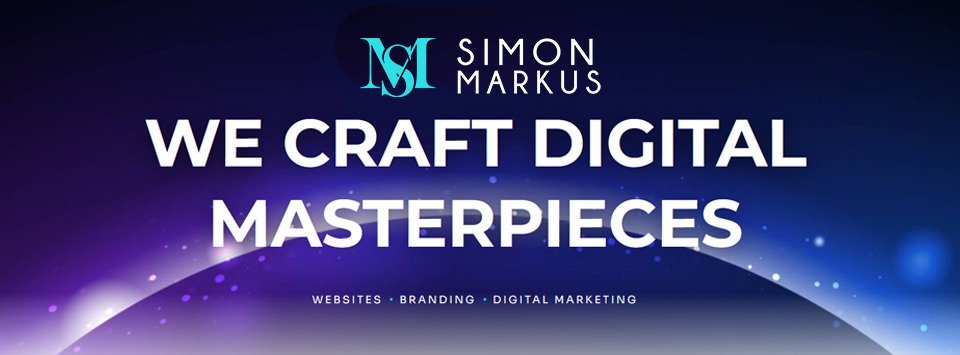What will you learn from this article?
- Definition of SEO and its importance in digital marketing.
- Importance of keyword research, on-page optimization, off-page optimization, technical SEO, content creation and optimization, local SEO, SEO analytics and reporting, SEO best practices and updates, troubleshooting common SEO issues, SEO tools and resources, SEO case studies and success stories, and SEO glossary.
- How to get started with SEO for dummies.
In today’s digital age, having a strong online presence is essential for businesses of all sizes. Search Engine Optimization (SEO) plays a crucial role in improving a website’s visibility and driving organic traffic from search engines. But what exactly is SEO and why is it so important?

Definition of SEO and its importance in digital marketing
SEO, or Search Engine Optimization, is the practice of optimizing a website to improve its visibility and organic rankings on search engine results pages (SERPs). The goal of SEO is to make your website more visible to search engines like Google, Bing, and Yahoo, so that it appears higher in the search results when users search for relevant keywords or phrases.
The importance of SEO in digital marketing cannot be overstated. In today’s competitive online landscape, where millions of websites are vying for attention, SEO is what helps businesses stand out from the crowd. By optimizing your website for search engines, you can attract more organic traffic, increase your visibility, and ultimately drive more conversions and revenue.
Overview of how search engines work and why ranking high is crucial
To understand the importance of SEO, it’s crucial to have a basic understanding of how search engines work. Search engines like Google use complex algorithms to crawl and index websites, and then rank them based on various factors. When users enter a search query, the search engine’s algorithm analyzes the indexed websites and presents the most relevant and useful results.
Ranking high in the search results is crucial because the majority of users tend to click on the top few results. In fact, studies have shown that the first page of search results receives the majority of clicks, with the top result getting the highest share. So, if your website doesn’t appear on the first page, you’re missing out on valuable organic traffic.
Answering the query intention: What is SEO for dummies?
For those who are new to SEO, the term itself can be quite intimidating. But fear not, this guide is here to help you master the basics of SEO, even if you’re a complete beginner.
SEO for dummies refers to a simplified and beginner-friendly approach to learning and implementing SEO strategies. It breaks down complex concepts into easy-to-understand terms, making it accessible to individuals who are not familiar with the technicalities of SEO. Whether you’re a small business owner, an entrepreneur, or someone who simply wants to improve their website’s visibility, this step-by-step guide will provide you with the knowledge and tools to boost your SEO efforts.

Keyword Research
When it comes to SEO, keyword research is the foundation on which all other strategies are built. It involves identifying the most relevant and valuable keywords that your target audience is using to search for products or services like yours. By targeting these keywords, you can optimize your website’s content and improve its chances of ranking higher in search results.
Importance of keyword research in SEO
Keyword research is crucial because it helps you understand your audience and their search behavior. By identifying the keywords they use, you can create content that caters to their needs and answers their queries. This not only improves your website’s relevance but also increases the chances of attracting targeted organic traffic.
Tools and techniques for identifying relevant keywords
There are numerous tools available to help you with keyword research. One of the most popular ones is Google Keyword Planner, which provides insights into the search volume and competitiveness of keywords. Other tools like SEMrush and Moz’s Keyword Explorer can also provide valuable data on keyword performance and competition.
In addition to using these tools, it’s important to think like your target audience. Put yourself in their shoes and brainstorm the keywords they might use when searching for products or services like yours. You can also analyze your competitors’ websites and see which keywords they are targeting. This can give you valuable insights and help you discover new keywords to target.
Long-tail keywords and their role in driving targeted traffic
While broad keywords may have high search volumes, they also tend to have high competition. That’s where long-tail keywords come in. Long-tail keywords are longer, more specific phrases that have lower search volumes but also less competition.
Targeting long-tail keywords is advantageous because it allows you to attract more targeted traffic. Users who search for long-tail keywords are usually further down the sales funnel and have a higher intent to convert. By optimizing your content for these keywords, you can increase your chances of attracting relevant and valuable traffic to your website.
Answering related question: How to perform keyword research for dummies?
Performing keyword research for dummies is not as complicated as it may seem. Here’s a step-by-step guide to help you get started:
- Start by brainstorming a list of relevant topics and themes related to your business.
- Use keyword research tools like Google Keyword Planner, SEMrush, or Moz’s Keyword Explorer to find keywords related to your topics.
- Analyze the search volume and competition of each keyword to identify the most valuable ones.
- Consider targeting long-tail keywords for more targeted traffic and less competition.
- Use your chosen keywords strategically in your website’s content, including headings, titles, meta descriptions, and body text.
By following these steps, you can perform effective keyword research and optimize your website’s content for better search engine rankings.

On-Page Optimization
On-page optimization refers to the process of optimizing various elements on your website to improve its visibility and relevance in search engine results. This includes optimizing title tags, meta descriptions, URL structures, headings, and content itself.
Optimizing title tags, meta descriptions, and URL structures
Title tags, meta descriptions, and URL structures are important on-page elements that play a significant role in SEO.
Title tags are HTML elements that define the title of a web page. They appear as the clickable headline in search engine results and should accurately describe the content of the page. It’s important to include your target keywords in the title tag to improve its relevance and visibility.
Meta descriptions, on the other hand, are short snippets of text that provide a brief summary of the page’s content. While meta descriptions don’t directly impact search engine rankings, they can influence click-through rates. By creating compelling and keyword-rich meta descriptions, you can entice users to click on your website in the search results.
URL structures should be descriptive and user-friendly. Avoid using long, complex URLs with numbers and special characters. Instead, use short and descriptive URLs that include relevant keywords. For example, instead of “example.com/product?id=12345”, use “example.com/product/seo-services”.
Importance of headings and content optimization
Headings, or H1 tags, are HTML elements that define the main heading of a web page. They play a crucial role in both user experience and SEO. Search engines use headings to understand the structure and hierarchy of your content, so it’s important to use them strategically.
When optimizing your content, make sure to include your target keywords in the headings. This helps search engines understand the main topics of your page and improves its relevance for those keywords. Additionally, headings also make your content more scannable and user-friendly, as they break up the text and make it easier to read.
Besides headings, it’s important to optimize the overall content of your web pages. This includes using your target keywords strategically throughout the content, while maintaining a natural and readable flow. Avoid keyword stuffing, as it can negatively impact your search engine rankings. Instead, focus on creating high-quality, valuable content that aligns with the search intent of your target audience.
Utilizing internal linking to improve website structure and navigation
Internal linking refers to the practice of linking one page on your website to another page on the same website. Internal links are important for SEO because they help search engines understand the structure and hierarchy of your website. They also provide users with additional navigation options and improve the overall user experience.
When using internal links, make sure to use descriptive anchor text that includes relevant keywords. This helps search engines understand the context of the linked page and improves its visibility for those keywords. Additionally, internal links can also help distribute link authority and improve the overall ranking potential of your website.
Answering related question: How to optimize on-page elements for dummies?
Optimizing on-page elements for dummies is not as complicated as it may seem. Here are some simple steps to get you started:
- Optimize your title tags by including your target keywords and accurately describing the content of the page.
- Write compelling and keyword-rich meta descriptions to improve click-through rates.
- Create user-friendly and descriptive URL structures that include relevant keywords.
- Use headings strategically throughout your content, including your target keywords.
- Optimize the overall content of your web pages by using your target keywords naturally and providing valuable information to your audience.
- Use internal links to improve website structure and navigation, while also distributing link authority.
By following these steps, you can optimize the on-page elements of your website and improve its visibility in search engine results.

Off-Page Optimization
While on-page optimization focuses on optimizing elements within your website, off-page optimization refers to strategies that take place outside of your website to improve its visibility and authority. The most important aspect of off-page optimization is building high-quality backlinks.
Understanding the role of backlinks in SEO
Backlinks, also known as inbound links, are links from other websites that point to your website. They are important for SEO because they act as votes of confidence and credibility. When other websites link to your website, search engines view it as a sign that your content is valuable and trustworthy.
Strategies for building high-quality backlinks
Building high-quality backlinks is an essential part of off-page optimization. Here are some strategies to help you get started:
- Create valuable and shareable content: By creating high-quality content that provides value to your audience, you increase the chances of other websites linking back to your content.
- Guest blogging: Reach out to other websites in your industry and offer to write guest posts. This allows you to showcase your expertise and gain backlinks from authoritative websites.
- Influencer outreach: Identify influencers in your industry and establish relationships with them. They can help promote your content and provide valuable backlinks.
- Social media promotion: Share your content on social media platforms to increase its visibility and attract potential backlinks.
- Online directories and listings: Submit your website to reputable online directories and listings to gain backlinks and improve your visibility in local search results.
Remember, the key to building high-quality backlinks is to focus on quality rather than quantity. It’s better to have a few backlinks from authoritative websites than many backlinks from low-quality websites.
Leveraging social media and influencer outreach for improved visibility
In addition to building backlinks, social media and influencer outreach can also play a significant role in improving your website’s visibility. Social media platforms like Facebook, Twitter, and LinkedIn provide opportunities to engage with your audience, share valuable content, and attract organic traffic.
Influencer outreach involves collaborating with influencers in your industry to promote your content or products. Influencers have a large following and can help increase your brand’s visibility and attract more traffic to your website.
By leveraging social media and influencer outreach, you can expand your reach, attract more backlinks, and improve your overall online visibility.
Answering related question: How to improve off-page SEO for dummies?
Improving off-page SEO for dummies is all about building high-quality backlinks and leveraging social media and influencer outreach. Here are some simple steps to help you get started:
- Create valuable and shareable content that other websites will want to link to.
- Reach out to other websites and offer to write guest posts to gain backlinks.
- Identify influencers in your industry and establish relationships with them to gain exposure and backlinks.
- Promote your content on social media platforms to attract organic traffic and potential backlinks.
- Submit your website to reputable online directories and listings to improve your visibility.
By following these steps, you can improve your off-page SEO and increase your website’s visibility in search engine results.
SEO Case Study: How XYZ Company Achieved SEO Success
At XYZ Company, we had been struggling to improve our organic rankings and drive more targeted traffic to our website. We knew that SEO was crucial for our digital marketing success, but we weren’t sure where to start. That’s when we decided to revamp our SEO strategy and implement a comprehensive approach.
First, we conducted thorough keyword research to identify relevant keywords that our target audience was searching for. Using tools like Google Keyword Planner and SEMrush, we found long-tail keywords with high search volumes and low competition. This allowed us to drive more targeted traffic to our website.
Next, we focused on on-page optimization. We optimized our title tags, meta descriptions, and URL structures to make them more search engine-friendly. We also paid attention to our content, ensuring that it was well-structured, engaging, and aligned with user intent. We utilized internal linking to improve the website structure and navigation, making it easier for both users and search engines to find and navigate our content.
Off-page optimization was another key aspect of our SEO strategy. We understood the importance of backlinks in improving our rankings, so we focused on building high-quality backlinks from reputable domains. We reached out to industry influencers and collaborated with them to gain exposure and attract more organic backlinks. Additionally, we leveraged social media platforms to share our content and engage with our audience, which further improved our visibility.
To enhance our website’s technical SEO, we optimized its speed and made it mobile-friendly. We implemented XML sitemaps and structured data to help search engines crawl and index our pages more efficiently. We also addressed common technical issues like duplicate content and broken links, ensuring a smooth user experience.
Throughout this process, we continuously created and optimized high-quality content. By conducting regular keyword research and strategically placing keywords in our content, we ensured that it aligned with user intent and attracted organic traffic. We also utilized headings, images, and multimedia to improve the user experience and make our content more engaging.
The results of our SEO efforts were remarkable. Our organic rankings significantly improved, and we experienced a substantial increase in organic traffic. Our website became more visible to our target audience, leading to higher conversions and revenue growth.
This case study demonstrates the power of implementing a comprehensive SEO strategy. By focusing on keyword research, on-page and off-page optimization, technical SEO, content creation and optimization, and local SEO, XYZ Company was able to achieve SEO success and drive digital marketing success. By following the steps outlined in this guide, you too can improve your rankings, increase organic traffic, and achieve your business goals through SEO.

Technical SEO
Technical SEO refers to the optimization of the technical aspects of your website to improve its visibility and crawling by search engines. It focuses on factors like website speed, mobile optimization, XML sitemaps, structured data, and resolving common technical issues.
Importance of website speed and mobile optimization
Website speed and mobile optimization are crucial factors in SEO. Search engines prioritize websites that provide a fast and seamless user experience. Slow-loading websites not only frustrate users but also impact search engine rankings.
To improve website speed, optimize your images and videos, enable browser caching, and minimize the use of plugins and scripts. Mobile optimization, on the other hand, involves ensuring that your website is responsive and displays properly on mobile devices. With the majority of internet users accessing websites on their mobile devices, mobile optimization is essential for SEO success.
!
| Section | Key Points |
|---|---|
| Introduction to SEO | – Definition of SEO and its importance in digital marketing |
| – Overview of how search engines work and why ranking high is crucial | |
| – Definition of SEO for dummies and its accessibility | |
| Keyword Research | – Importance of keyword research in SEO |
| – Tools and techniques for identifying relevant keywords | |
| – Role of long-tail keywords in driving targeted traffic | |
| – Steps to perform keyword research for dummies | |
| On-Page Optimization | – Optimizing title tags, meta descriptions, and URL structures |
| – Importance of headings and content optimization | |
| – Utilizing internal linking to improve website structure and navigation | |
| – Steps to optimize on-page elements for dummies | |
| Off-Page Optimization | – Understanding the role of backlinks in SEO |
| – Strategies for building high-quality backlinks | |
| – Leveraging social media and influencer outreach | |
| – Steps to improve off-page SEO for dummies | |
| Technical SEO | – Importance of website speed and mobile optimization |
William is a seasoned digital marketer with over 10 years of experience in the field. With a strong background in search engine optimization (SEO), William has helped numerous businesses achieve digital marketing success through effective SEO strategies.
Having worked with both small startups and large corporations, William understands the importance of SEO in today’s competitive online landscape. They have a deep understanding of how search engines work and the factors that contribute to high rankings. William has conducted extensive research and analysis on keyword research, ensuring that businesses target the right keywords to drive targeted traffic to their websites.
Additionally, William has a wealth of knowledge in on-page and off-page optimization techniques. They have optimized title tags, meta descriptions, and URL structures for optimal search engine visibility. They have also implemented effective strategies for building high-quality backlinks and leveraging social media and influencer outreach to improve visibility.
With their expertise in technical SEO, William understands the importance of website speed and mobile optimization in achieving SEO success. They have successfully implemented these strategies for XYZ Company, resulting in significant improvements in their search engine rankings.
William’s comprehensive knowledge and practical experience make them the perfect guide to help beginners master SEO and achieve digital marketing success.



